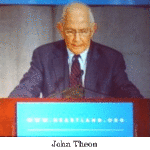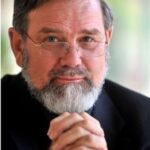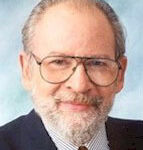‘The Mad, Mad, Mad World of Climatism’
Describes Collapse of Global Warming Panic
In celebration of Earth Day, The Heartland Institute – a free-market think tank The Economist magazine calls “the world’s most prominent think tank promoting skepticism about man-made climate change” – is sending 100,000 copies of The Mad, Mad, Mad World of Climatism by Steve Goreham to educators, business and civic leaders, judges, environmental journalists, and elected officials across the country. Enclosed with the book is a 10-minute DVD titled Unstoppable Solar Cycles: Rethinking Global Warming.
The arguments Goreham makes in The Mad, Mad, Mad World of Climatism are not just opinions, but are based on the work of hundreds of scientists across the world who challenge the theory of man-made global warming. Graphs and scientific data from peer-reviewed papers are used to show that man-made influences are actually only a very small part of Earth’s climate. The evidence is available for all to see in a clear and compelling format.
“The Mad, Mad, Mad World of Climatism is one of the best books on global warming I’ve seen, so we are delighted to be able to distribute it widely in time for Earth Day,” said Joseph Bast, president of The Heartland Institute. “Making sure books like this one get the attention they deserve is only one of a dozen educational projects on global warming we have underway. We’re winning the public debate because we trust people to understand the real science and see past the hype, and we reach enough opinion leaders to make a difference. The Mad, Mad, Mad World of Climatism is a great primer for experts and novices alike.”
The following statements about Earth Day from environment policy experts at The Heartland Institute may be used for attribution. For more comments, refer to the contact information below. To book a Heartland guest on your program, please contact Director of Communications Jim Lakely at [email protected] and 312/377-4000 or (cell) 312/731-9364.
For more information on Heartland’s efforts on climate policy, see its environment suite, coverage in Environment & Climate News and the Heartlander digital magazine, videos of Heartland’s eight international conferences on climate change, NIPCC.org, and searches of the massive PolicyBot database.
“Earth Day has been clearly a mixed bag of good and not-so-good for America. Clearly it focused all citizens’ attention on conserving the United States’ great environment. Unfortunately many issues have been tackled that neither benefit our citizens nor their environment.
“First among these is our ridiculous pursuit of renewable energy such as wind and solar which, due to the physics of our universe, cannot ever be economically harvested because of their disperse nature across our nation. Secondly, we have passed a number of environmental regulations that impede progress with no return on investment to society.
“Of course most important of all has been the launching of fear that man is causing deleterious climate change. In fact, a strong case can be made for the fact that increasing carbon dioxide makes all things green, growing crops more prolifically, and keeping the costs of the world’s food at lower and lower rates. Unfortunately, our free-market society has caused every major industry to pretend to be ‘green’ when in fact much of their efforts benefit no one.”
Jay Lehr
Science Director
The Heartland Institute
[email protected]
312/377-4000
“Earth Day provides a useful reminder of the environmental advances regarding energy technologies. Today’s coal power technologies allow for electricity production with much fewer emissions than in decades past. New natural gas technologies allow electricity providers to cut emissions by still another 90 percent. Hydropower and nuclear power produce electricity with no emissions whatsoever.
“So-called environmental groups champion wind turbines, which the federal government documents kills 440,000 birds each year, including many protected and endangered species. Wind turbines also require developing hundreds of square miles of land to replace a single conventional power plant. So-called environmental groups champion solar power, which consumes inordinate amounts of water precisely where water is most needed and also requires developing vast swaths of otherwise-pristine lands.
“It is time to protect and preserve our environmental resources by celebrating our conventional energy production rather than unquestioningly buy into the anti-energy agenda of self-professed environmental activist groups.”
James M. Taylor
Senior Fellow for Environmental Policy
The Heartland Institute
[email protected]
941/776-5690
“Some of us have exhibited the hubris of good intentions but have deluded ourselves into believing that we can control the climate. Indeed, as our global numbers grow far beyond any population in the history of the planet, we have the audacity to believe that climate models are able to forecast the future climate. An objective and honest analysis of this belief demonstrates that we are wrong. Consensus does not prove anything.
“Observed facts do not support the climate models nor the belief that mankind can change the climate in a significant way. Limiting our carbon footprint to actually have a measurable effect on climate will prove to be so costly that a world of 7 billion human beings will be unable to feed itself, much less have an acceptable standard of living.”
John Theon
NASA Atmospheric Scientist (retired)
[email protected]
312/377-4000
“A citizen needs to have sufficient information from both sides of an issue in order to be able to make intelligent decisions about what actions to pursue. Furthermore, survival and enhancement of one’s life requires that those actions be consistent with reality. In particular, sustaining affordable energy is essential in order to be well fed, well clothed, warm during the winter, cool during the summer and, in general, to continue to achieve a higher standard of living leading to a happier life.
“So, on Earth Day, as on every day, it is worthwhile reflecting on both sides of the debate over so-called ‘global warming/climate change’ – otherwise known as anthropogenic global warming, or AGW. Yet, the mass media tends to primarily convey only one side of the issue – alarmist scenarios such as those seen in Al Gore’s film/book, An Inconvenient Truth. But what of the other side of AGW?
“Such a side – which most directly looks at ‘An Inconvenient Truth’ from a questioning and critical-thinking viewpoint – has been written by Marlo Lewis. It is called Al Gore’s Science Fiction: A Skeptic’s Guide to an Inconvenient Truth. It exposes Mr. Gore’s work to a searching and documented analysis; comparing its claims to what was known at the time.
“The fact that the author is not a climatologist gives hope to the average person that he/she can also use reason to ask probing questions and do searches to find answers that make sense. For a scientific study that critically examines the claims of AGW, the reader is invited to look into the well-researched reports of the Nongovernmental International Panel on Climate Change (NIPCC).
“Do not be put off by charges of being called a ‘denier’ of AGW, or by being told that ‘the science of AGW is settled’ or that ‘the leading scientific authorities hold that AGW is true’ or that ‘the scientific consensus is that AGW is true.’ There is the other side of the AGW issue. It has many scientists and other citizens on its side. It is well documented. It is well reasoned. And it needs to be understood. So, while you still have the freedom, I hope you will pursue that understanding.”
Laurence I. Gould, Ph.D.
Professor of Physics
University of Hartford
Chair (2004), New England Section of the American Physical Society
[email protected]
312/377-4000
“Earth Day participants must distance themselves from the climate scare or risk the event degenerating into irrelevance. As the hypothesis that humanity’s carbon dioxide (CO2) emissions are causing dangerous global warming falls into disrepute, all those associated with the climate alarm will also lose credibility.”
Tom Harris
Executive Director
International Climate Science Coalition
Policy Advisor, Energy and Environment
The Heartland Institute
[email protected]
312/377-4000
“”Environmentalists hail Earth Day as the beginning of the environmental movement. They want us to believe that it is all about saving the planet, while their current efforts — and especially this year’s focus on climate change — actually harm the people and the planet.
“Instead of saving the earth, they are destroying the West’s economy by blocking good paying jobs, increased tax revenue, and a balancing of the trade deficit. The building of new terminals on the west coast to export coal, building of LNG export facilities, and building of the keystone pipeline are just three examples of their economy-killing efforts in America.
“As we’ve historically seen in third-world countries, and this past winter in Europe — where expensive green-energy has lead residents to strip city parks and national forests of trees so they can heat their homes with wood, strong economies and cost-effective energy are the best ways to protect the earth.”.”
Marita Noon
Executive Director
Citizens Alliance for Responsible Energy
[email protected]
312/377-4000
“The global temperature statistic has not risen since 1997 despite an increase in emissions of 8 percent. This nullifies the main argument presented by climate campaigners.
“Climate changes all the time, and it is important that civil hazard organisations are prepared for its extremes. But as demonstrated by the Nongovernmental International Panel on Climate Change, of which I am a contributing author, there are thousands of scientists and peer-reviewed science papers that refute the hypothesis that human emissions of CO2 are causing dangerous warming.”
Robert M. Carter
Marine Geologist, James Cook University
Policy Advisor, Environment
The Heartland Institute
[email protected]
312/377-4000
“Behind the many Earth Day suggestions is the environmentalists’ insistence on a general return to an era when household tasks were undertaken without machines that used electricity, before the ubiquitous benefits of plastic, and less cars were on the roads. In the 1940s my late mother had to wash clothes by hand and hang them in the back yard or basement to dry. Food was kept cool in an ice box before the invention of refrigerators. This is Earth Day’s idea of saving the Earth.”
Alan Caruba
Founder, The National Anxiety Center
Policy Advisor, The Heartland Institute
[email protected]
312/377-4000
The Heartland Institute is a 29-year-old national nonprofit organization headquartered in Chicago, Illinois. Its mission is to discover, develop, and promote free-market solutions to social and economic problems. For more information, visit our Web site or call 312/377-4000.









